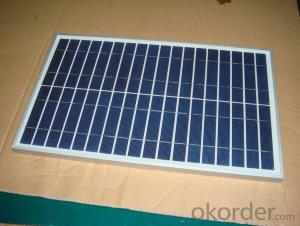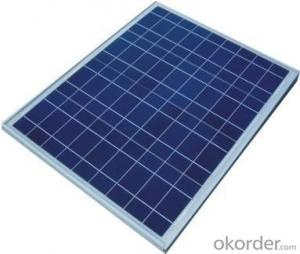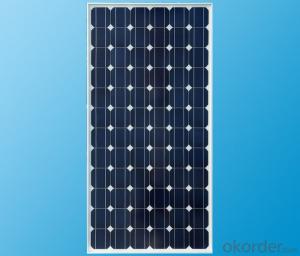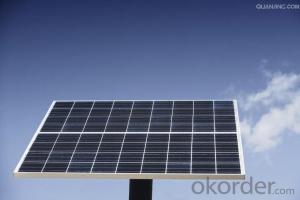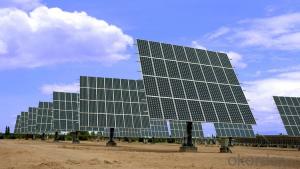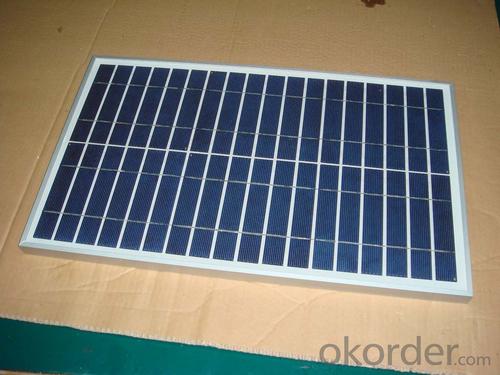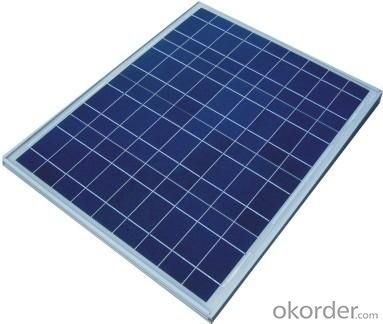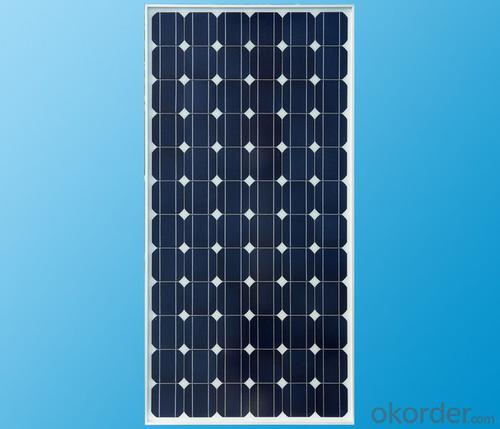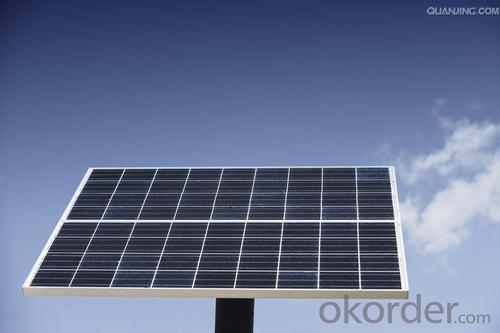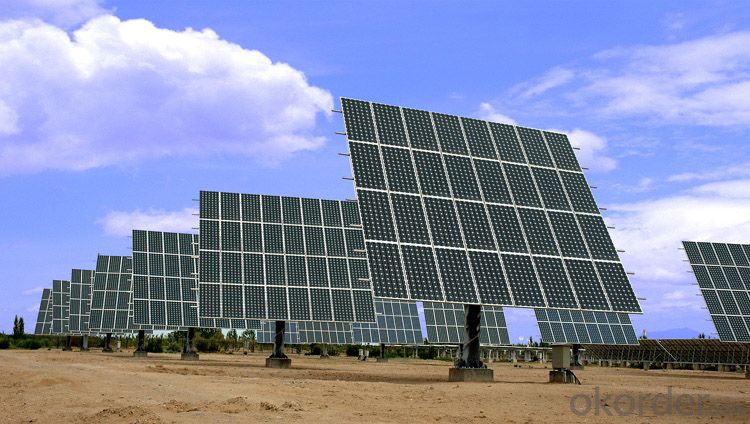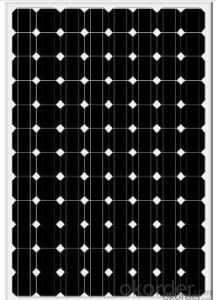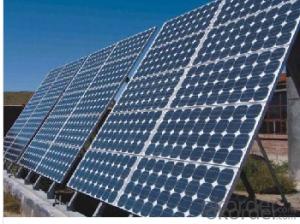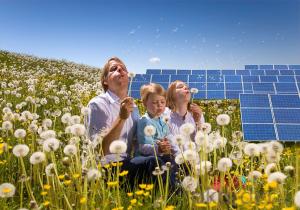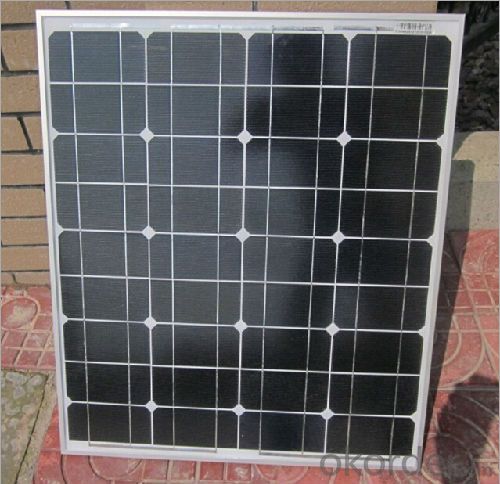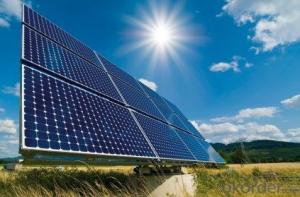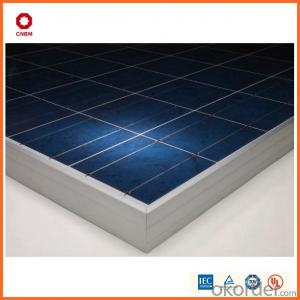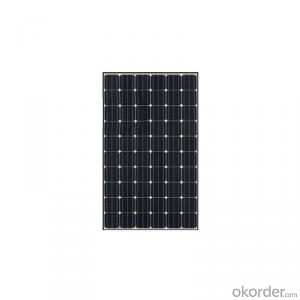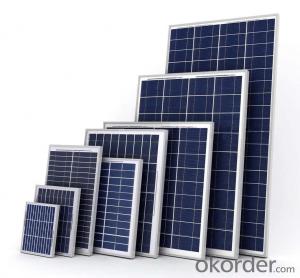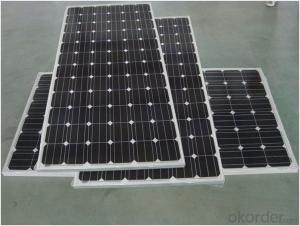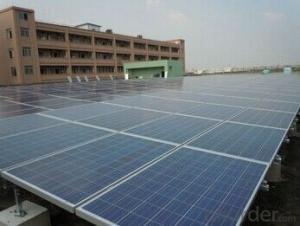High Voltage Solar Panels - Mono Solar Panel Without Frame for Solar Roofing Tile 7W 18V
- Loading Port:
- China main port
- Payment Terms:
- TT or LC
- Min Order Qty:
- 1 pc
- Supply Capability:
- 10000000 pc/month
OKorder Service Pledge
OKorder Financial Service
You Might Also Like
1.Structure of Solar Module Description
CNBM Solar's photovoltaic module is designed for designed for large electrical power requirement. It is the optimal choice for both on-grid and off-grid power systems. CNBM Solar offers high performance of power per square foot of solar array.
2.Main Features of the Solar Module
Solar Cell: High efficency crystalline solar cell. Even if under the weak light, the solar module can produce maximum power output.
Tempered glass: Anti-reflecting coating and high transmission rate glass increase the power output and mechanical strength of solar module.
EVA and TPT: Using high quality EVA and TPT to prevent destroying and water.
Strong aluminum frames to strengthen the load hold and to stand against high wind.
Junction box: Multi function junction box with water proof.
Long lifetime: ≥25 years; Less power decrease.
Good performance of preventing from atrocious weather such as wind and hails.
Resisting moisture and etching effectively, not effected by geology.
The certificate issued by international authority: UL, TUV, IEC, VDE, CE.
Quick Details
| Place of Origin: | Zhejiang China (Mainland) | Brand Name: | DEJIE | Model Number: | DJ-SP |
| Material: | Polycrystalline Silicon | Size: | 54*31*2.8mm | Number of Cells: | 10pcs |
| Max. Power: | 0.17w | materials: | epoxy resin |
Packaging & Delivery
| Packaging Detail: | Bubble bag outer Carton |
| Delivery Detail: | 10days |
3.Solar Module Images
4.Solar Module Specification
1: Long Service Life
2: High Efficiency Solar Cells
3:RoHS/CE
4:High Intensity PCB Board
5: Customized Size and Paramete
low price 0.1w to 3w mini small solar panel
Epoxy solar panel structure
It is a traditional type small solar panel called epoxy resin encapsulated solar panel, which is sticked together by epoxy resin glue at a temperature 50~60 degree, you will see the epoxy resin coated panel have three layers,
1. Epoxy Resin AB Glue
2. Solar Cells
3. PCB Board
Features
1): Epoxy resin solar panel is made of monocrystalline or polycrystalline silicon. The encapsulation material are made of Epoxy Resin. Characterized by anti-humidity, insulation, excellent transparence and anti-aging, as well as smoothness, no bubble and neat apperance. Hard appearance; long-time life, high-performance to week light; widely used in lamp series, no power source sector.
2): Epoxy resin solar panels are easily to install; friendly environmental. High efficiency solar cells, Non-stick protective film.
3):Epoxy resin solar panels can be widely used in solar lawn lamps, solar toys, solar chargers and solar signal lights.
Epoxy Resin Solar Panel Manufacturing Process:
Cut—Assemble—Test—Epoxy Resin—Vacuumize—Bake—Inspect—Coating
Why Choose us?
Have a very strong and professional QC and selling Team
OEM Service Offered/Design Service Offered/Buyer Label Offered
Factory supplier directly
welcome to visit our factory
4.Solar Module Specification
- Q: How long does it take to recoup the investment in solar panels?
- The time it takes to recoup the investment in solar panels varies depending on several factors such as the cost of the panels, installation expenses, local energy rates, and available incentives. On average, it typically takes around 6 to 10 years to recoup the initial investment. However, with decreasing panel costs and increasing energy savings, the payback period is continually improving, making solar panels a worthwhile long-term investment for many homeowners and businesses.
- Q: How do solar panels affect the electrical grid?
- Solar panels can have both positive and negative effects on the electrical grid. On the positive side, solar panels generate clean and renewable energy, which reduces the reliance on fossil fuels and decreases greenhouse gas emissions. Additionally, solar panels can help decentralize the grid by allowing individual households or buildings to generate their own electricity, reducing strain on the overall grid. However, the intermittent nature of solar power can pose challenges for grid operators, as it requires careful management to balance supply and demand. Moreover, the increased number of solar installations can also lead to voltage fluctuations and grid instability if not properly managed. Overall, while solar panels offer numerous benefits, their integration into the electrical grid requires careful planning and coordination.
- Q: What is the principle of solar panels to convert solar energy into electricity?
- When the light is irradiated on the surface of the solar cell, a part of the photon is absorbed by the silicon material; the energy of the photon is transferred to the silicon atom, so that the electrons are moved and the free electrons are formed on both sides of the P-N junction to form a potential difference. When the circuit is used, the current will flow through the external circuit to produce a certain output power. The essence of this process is the process of converting the energy of the photon into electrical energy.
- Q: Can solar panels be used to power an air conditioning system?
- Yes, solar panels can be used to power an air conditioning system. The electricity generated by the solar panels can be used to run the air conditioning unit directly, reducing reliance on the grid and saving on electricity bills. However, the feasibility and effectiveness of using solar panels for this purpose may depend on factors such as the size of the solar panel system, the energy efficiency of the air conditioning system, and the availability of sunlight in the area.
- Q: Exactly How much power will this kit produce? for example. Will it only be able to power the 2 light throughout an entire day or would it be able to power a couple TV's with a couple lights. Or a Refrigerator? washer dryer? I'm just wondering exactly what it will be able to do and if it's worth paying $200 for if it'll only power two lights. Don't get me wrong, That's great and will make a difference but i'm looking for something that will make a little bit of a bigger difference. Would the 80 watt monocrystalline solar panel be much better? if so, what would it be able to power? double?
- This Site Might Help You. RE: 45 Watt Solar Panel Kit Harbor Freight? Exactly How much power will this kit produce? for example. Will it only be able to power the 2 light throughout an entire day or would it be able to power a couple TV's with a couple lights. Or a Refrigerator? washer dryer? I'm just wondering exactly what it will be able to do and if...
- Q: Can solar panels be used in areas with high levels of pollution from industrial activities?
- Yes, solar panels can be used in areas with high levels of pollution from industrial activities. While pollution can potentially reduce the efficiency and performance of solar panels, they can still generate electricity even in polluted environments. However, regular maintenance and cleaning of the panels may be required to ensure optimal performance.
- Q: Can solar panels be used in areas with high levels of drought?
- Yes, solar panels can be used in areas with high levels of drought. Solar panels are not affected by water scarcity as they do not require water for their operation. They generate electricity by converting sunlight into energy, making them suitable and effective in dry climates.
- Q: I have purchased a 2 volt LED lantern from argos, it comes with a built in 6 volt 4ah sealed acid battery. What I wanted to know is would I be able to charge it using my 6 volt solar panel?
- If it has a 6 volt battery- is it marked 2 volts on an external plug? If so, there is a resistor inside to drop the potential the battery sees. The battery itself could be slipped out and recharged easily from your 6 volt panel. Just determine how much current (in Amps or Milliamps) the panel produces nominally and divide that into 4 and add one fourth of that length of time to make up for system losses. This will tell you how many hours it should charge assuming your starting voltage of the battery is above .5 volts. and the panel is at 3 volts potential or higher. So if your panel puts out amp at 0AM, you would charge for 5 hours. 4 divided by is 4 and one fourth of that is so 4 plus is 5. It is a little more involved than that, but as a rule of thumb. Also do not discharge tha lantern to the point of no light output. LEDs are efficient, but their current will add up. If it is suggest to be able to use the lantern for up to 8 hours on a charge, stick to that value. Lead acid batteries have best longevity when discharged only to 80 percent capacity. Once battery is charged- disconnect from charging source.
- Q: How do solar panels affect the property's community engagement?
- Solar panels can positively impact a property's community engagement by showcasing the owner's commitment to renewable energy and environmental sustainability. This can inspire and engage community members to consider renewable energy options themselves. Additionally, solar panels can serve as an educational tool, promoting awareness and understanding of the benefits of solar energy within the community.
- Q: Are there any safety precautions to consider when installing solar panels?
- Yes, there are several safety precautions to consider when installing solar panels. Firstly, it is important to work with a licensed and experienced professional who is trained in solar panel installation to ensure proper installation and minimize the risk of accidents. Additionally, it is crucial to turn off all electrical power and follow proper electrical safety procedures before installing solar panels. Adequate fall protection measures should be in place, especially when working on rooftops or elevated areas. It is also important to consider the weight and structural integrity of the roof to ensure it can support the panels. Lastly, proper grounding and wiring techniques should be followed to prevent electrical hazards.
Send your message to us
High Voltage Solar Panels - Mono Solar Panel Without Frame for Solar Roofing Tile 7W 18V
- Loading Port:
- China main port
- Payment Terms:
- TT or LC
- Min Order Qty:
- 1 pc
- Supply Capability:
- 10000000 pc/month
OKorder Service Pledge
OKorder Financial Service
Similar products
Hot products
Hot Searches
Related keywords
